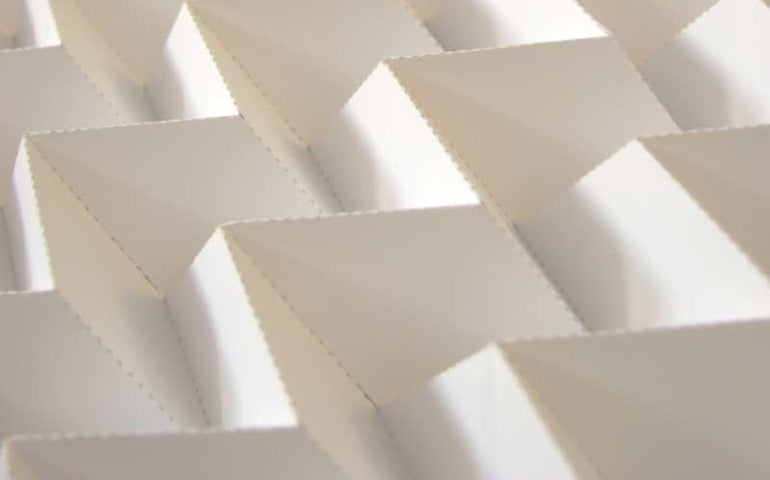A three-person startup already boasting contracts with NASA and awards from the U.S. Army and National Science Foundation is looking to open a headquarters in Worcester.
That firm, Multiscale Systems, was recently selected among hundreds of other proposals to help NASA in its Moon to Mars mission as the agency seeks a return to the moon with the goal of manned missions to Mars.
Founder Jesse Silverberg, who currently runs the company out of his Worcester home, calls the company an advanced materials firm specializing in making things lighter, stronger, barrier resistant and multi-functional.
“And we can do all of that without changing the molecular of chemical composition of what we’re working on,” he said.
The company does this by designing geometric patterns embedded into whatever materials the company happens to be working on. That is done via 3D printing, laser cutting or milling.
“A lot of our inspiration comes from origami,” Silverberg said, “and a lot of computation.”
For example, a sheet of paper won’t stay upright if its held in the air. If that same piece of paper is folded, it now has the rigidity to support itself.
“That’s really a basic example of how something as simple as a geometric line can make paper stronger,” Silverberg said.
Silverberg believes the firms’ technology has a wide range of applications, from defense, aerospace, infrastructure, robotics and mechanical systems. The technology could help companies control costs when building electrical control components by utilizing physics and mechanical systems.
For NASA, the firm is being asked to create ultra lightweight mechanical materials to mitigate the impacts and crashes of what NASA calls urban air mobility vehicles.
“Really what they’re talking about are Jetsons cars,” Silverberg said.
NASA, anticipating unmanned aerial vehicles as a means of future public transportation with a possible application in space travel, wants Silverberg and his team to ensure the vehicles are safe in the event they crash.
SIlverberg — a physicist with degrees from Northeastern University, Cornell University and Harvard University — and his technology have already gained national and local traction, winning a $224,500 grant from the National Science Foundation and being accepted into MassChallenge’s business accelerator program to help startups grow.
The firm has contacted the Worcester Regional Chamber of Commerce about locating office and manufacturing space in the city.
With complicated manufacturing projects anticipated for the company’s future, Silverberg said he wanted to locate the company in a region with a rich history of manufacturing.
“There’s a lot of history and skills that are unique to Worcester that over the next few years, we will be able to tap into and take advantage,” he said.

